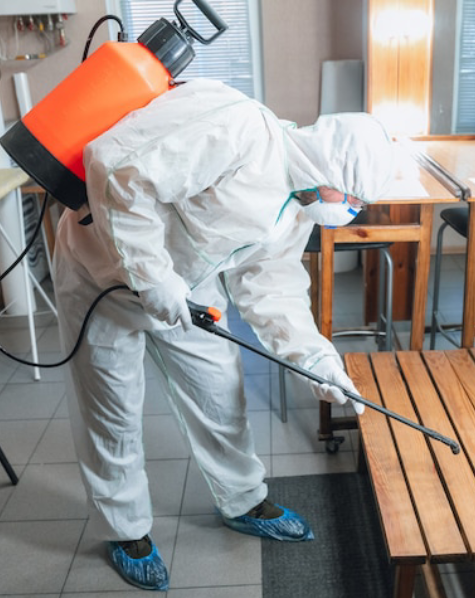Operating a small business comes with unique set of obstacles, and one of those difficulties is tackling infestations. Whether you operate a bistro, retail shop, or office space, the existence of critters can pose major risks to your operations, including destruction to your property and damage to your brand. Clients demand a sanitary and safe atmosphere, and a pest problem can quickly erode faith and push them out. In this guide offer key tips and tricks for pest management tailored specifically for small businesses.
Starting with identifying common home pests to knowing when it’s appropriate to bring in the professionals, this document includes everything you need to learn to maintain your business free of pests throughout the year. You’ll learn useful approaches for seasonal pests and understand the significance of routine evaluations. With proactive actions and professional advice, you can ensure that your business stays a inviting and pleasant environment for your clients. Continue to find out how to effectively manage and mitigate pest issues so you can devote yourself to your core activities—operating your enterprise.
Frequent Household Pests and Prevention Strategies
Frequent home critters feature fire ants, cockroaches, bed bugs, and rodents, that can disrupt daily life and carry health risks. Ants are often drawn to food crumbs and spills, making cleanliness essential for prevention. To manage an ant infestation, detect and eradicate the nest using poison traps or certified extermination assistance. Regular cleaning and sealing potential entry points can considerably reduce the chance of an ant invasion.
Palmetto bugs are infamous for their resilience and can spread diseases. Maintaining your house clean and free of food debris is essential, but sometimes this isn't enough. Implementing a combination of traps, baits, and professional pest control strategies can efficiently manage and eliminate these insects. It's also important to address leaks and seal cracks where cockroaches might hide.
Bedbug infestations have increased progressively common and can be troublesome to eliminate. They prosper on warm-blooded hosts and often get through luggage or used furniture. If you believe there is an infestation, it is important to act swiftly. Thoroughly inspect bedding and furniture for signs of bed bugs, and wash all affected items in hot water. Expert heat treatments and insecticides may also be necessary to fully remove the problem. Regular inspections and protective measures will help ensure your house continues to be bed bug-free.
Seasonal Pest Control Techniques
As the seasons transition, so do the kinds of infestations that may invade your establishment. In springtime, it's important to focus on controlling frequent pests like ants and termites. Start by inspecting your premises for any cracks or openings and secure them to deny invasion. Maintain the perimeter around your structure free of debris and standing water, as these form perfect conditions for vermin. Regularly clean outdoor spaces and ensure that trash bins are tightly sealed.
The summer brings a surge in mosquito populations. To prevent these vermin at arm's length, try using organic preventatives around your outdoor patios. Additionally, upkeep your yard by pruning shrubs and keeping grass cut, as this can lessen concealed areas. Installing screens on glass openings and doors can also help a filter against uninvited visitors. Consistently removing see standing water is vital to halt mosquito from breeding on your site.

As autumn arrives, vermin start searching for protection and sustenance. This is the perfect time to conduct a thorough inspection of your building. Look for cracks in structures, around utilities, and in bases that mice could use to enter. Deploy devices and lures strategically to observe vermin presence. In winter, keep on to observe and upkeep the property by ensuring food storage areas organized and confirming that all spaces are tightly closed to prevent infestations out during the winter season.
The Importance of Professional Pest Management
Effective pest management is essential for small businesses to maintain a safe and wholesome environment for both employees and customers. Specialist pest control services provide knowledge and know-how in recognizing and handling different pest issues that may arise. These professionals are equipped to identify signs of infestations early, which can aid avoid costly damage and likely health hazards related to pests such as rodents, insects, and other typical nuisances.
Furthermore, Do-It-Yourself pest control often fails to address the root causes of infestations, causing recurring problems. Experts use integrated pest management approaches that are more efficient and environmentally friendly. They can implement long-term solutions adapted to the specific needs of a business, making sure that pest issues are settled thoroughly. This proactive approach not only conserves time and money but also reduces disruption in daily operations.
Finally, maintaining a pest-free environment is critical for protecting a company's reputation. Pests can ruin property, introduce health risks, and turn away customers. Prioritizing specialized pest management demonstrates a dedication to hygiene and safety, fostering trust and loyalty among patrons. Regular evaluations and treatments can maintain a business compliant with health regulations and boost its overall attractiveness, ensuring it remains a welcoming space for all.
